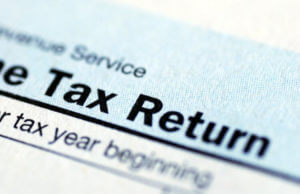We Help With Unfiled, Late & Lost Tax Returns

We help with unfiled tax returns, late and lost state and federal tax returns, and other tax-related errors or omissions.
Willfully failing to file tax returns when required is both a state and federal crime. If a taxpayer is caught and convicted for not filing their tax returns, they could face jail, substantial criminal fines and penalties, and then the assessment of the taxes–along with additional substantial civil tax penalties and interest.
When is a Tax Return Due?
The IRS expects taxpayers to file a timely and accurate tax return. Sometimes you cannot do both–either you have to file an inaccurate tax return or you have to wait and file a late tax return. There are strategies for dealing with this.
Generally, taxpayers have to file income tax returns by either the third or fourth month of each year. Income tax returns have to be filed if the taxpayer owed a tax liability or had self-employment income over certain minimum amounts. Business taxpayers also have to file tax returns if they had any items of income or expense.
Taxpayers may have to file many other types of tax returns, such as gift, estate, trust, employment, and excise tax returns. There are even reporting requirements for the receipt of large amounts of cash. There are rules for each return that say when it has to be filed and by what dates.
There are a number of consequences for filing tax returns late. The failure to file penalty is one example. This penalty and the interest that accrues on the penalty can be significant. While one can raise reasonable cause as a defense to the penalty, it is difficult to get penalties removed in most cases. This is due to the dearth of court cases where the taxpayer’s request was denied (here is an example of a taxpayer raising his drug addiction as a reason for filing his tax returns late; here is another one where the taxpayer blamed his CPA).
There have been a number of disputes relating to late-filed tax returns and tax returns that the IRS lost. This includes tax returns that were provided to IRS employees multiple times. For late-filed tax returns, the disputes often involve a request for an extension of time to file that was not sent in or disputes involving the postal service and the mailbox rule.
The mailbox rule generally applies if the taxpayer puts a tax return in the mail to the IRS before the original or extended due date, but the IRS does not actually receive the tax return until after the due date. In these cases, the mailbox rule says that the tax return was timely filed.
Other disputes involve tax returns that cannot be processed as they are filed after the expiration of the assessment date. Generally, the IRS has three years from the date a tax return is received from the taxpayer to assess additional tax (these time limits do not apply if the IRS is merely correcting a math error).
Disputes also involve excess collections. This applies if you file a tax return late, but had withholdings from your paycheck or made estimated payments timely. These timely payments cannot be paid back to you after the refund claim time has expired. There are strategies and options for dealing with these excess collections cases.
There are also disputes involving signatures on tax returns. This often comes up in the context of divorced or separates spouses, where only one of the spouses signed the tax return. These disputes also may include business owners and corporate officers who have the authority to sign the tax return.
Taxpayers can submit amended tax returns during this same time period (they can also pay the tax, and file a refund claim from two years of the date of the payment). The mailbox rule also applies to refund claims.
IRS-Prepared Tax Returns
The government does pursue criminal charges if taxpayers fail to file tax returns. But in most cases, the IRS merely assesses the tax and tries to collect the tax.
With respect to income taxes, the IRS will typically prepare tax returns for taxpayers who fail to file their own tax returns. These IRS-preared tax returns are referred to as “substitutes for returns” or SFRs.
The SFR allows the IRS to immediately assess taxes, penalties, and interest and, based upon the IRS-created tax return, begin the collection process (which may include wage garnishments, bank levies, and the seizure of personal and business property that the taxpayer owns).
This is problematic because IRS-created tax returns will typically fail to take into consideration any tax laws that are favorable to the taxpayer. For example, IRS-created tax returns will often apply omit most tax deductions and credits and fail to include the tax basis in calculating the gain on any investment or business assets that the taxpayer sold. The result is often an outrageously large tax bill.
With SFRs, the IRS typically does not actually fill out the tax return forms for taxpayers (taxpayers also do not have to use the IRS forms). Rather, the IRS issues a notice saying that it is adjusting the taxpayer’s account and it provides the reasons for doing so. This notice is in the same format as a statutory notice of deficiency (which is often referred to as a 90-day letter).
But there are other cases where the courts have said other IRS documents count as SFRs. For example, in Millsap v. Commissioner, 91 T.C. 926 (1988), the court concluded that a Form 1040 prepared by the IRS that only listed the taxpayers name, address and Social Security number and had a revenue agent’s report attached was an SFR. But in Cabirac v. Commissioner, 120 T.C. 163, the court concluded that the absence of a revenue agents report resulted in there being no SFR.
It should also be noted that there are some benefits of SFRs. One benefit of SFRs is that it starts the IRS’s 10-year collection period. The 10-year period starts on the date the SFR is recorded on the IRS’s books. In some cases, SFRs are recorded and most if not all of the 10-year collection period expires with the IRS has taken no collection actions.
Other Late Filing Problems
Unfiled or late returns or information reports for income, transfers, transactions, etc. with foreign persons and foreign accounts present additional problems.
There are a number of reporting and filing requirements for foreign accounts and transactions. These rules are constantly in flux. It is not always clear what accounts and transactions can trigger problems (for example, online payment accounts can trigger these filing requirements).
There are laws and IRS programs for making these late filings. The IRS’s offshore voluntary disclosure initiative or OVDI provides an avenue for disclosing offshore accounts or assets. The IRS also has a streamlined filing process for other missing information and other filings (such as Forms 5471, 5472, and 8856), which can help avoid or mitigate the significant penalties that are often associated with these filings.
Get Help With Your Unfiled Returns
An experienced tax attorney can help you prepare and file previously unfiled tax returns, late-filed tax returns, and lost tax returns.
Please call us at (713) 909-4906 or schedule an appointment to discuss your unfiled tax return with our tax attorneys.
Recent Unfiled Tax Return Articles
- When the IRS Agrees You’re Right But the Court Says You’re Wrong
 Say the IRS agrees that you are entitled to a sizeable tax deduction. But on audit, the IRS determines that you reported the tax deduction using the wrong form. The form used does not change the amount of the tax… Continue reading When the IRS Agrees You’re Right But the Court Says You’re Wrong
Say the IRS agrees that you are entitled to a sizeable tax deduction. But on audit, the IRS determines that you reported the tax deduction using the wrong form. The form used does not change the amount of the tax… Continue reading When the IRS Agrees You’re Right But the Court Says You’re Wrong - How Much Tax to Pay to Sue for a Refund?
 Say you run a business. The IRS audits your tax return and determines that you do not owe tax. It comes back a few years later and, even though your business is the same, determines that you owe tax. The… Continue reading How Much Tax to Pay to Sue for a Refund?
Say you run a business. The IRS audits your tax return and determines that you do not owe tax. It comes back a few years later and, even though your business is the same, determines that you owe tax. The… Continue reading How Much Tax to Pay to Sue for a Refund? - When Is an Informal Tax Refund Claim Timely?
 We’ve all experienced those moments when we say something and realize our wording wasn’t perfect. Yet from the other person’s nod or response, we can tell they understood our meaning perfectly well. We don’t feel the need to repeat ourselves… Continue reading When Is an Informal Tax Refund Claim Timely?
We’ve all experienced those moments when we say something and realize our wording wasn’t perfect. Yet from the other person’s nod or response, we can tell they understood our meaning perfectly well. We don’t feel the need to repeat ourselves… Continue reading When Is an Informal Tax Refund Claim Timely?
Read more articles about unfiled tax returns.
In 40 minutes, we'll teach you how to survive an IRS audit.
We'll explain how the IRS conducts audits and how to manage and close the audit.

